第31章
In the first place, then, I would suggest that they might possibly learn something from them. It will not be denied by anybody, that originality is a valuable element in human affairs. There is always need of persons not only to discover new truths, and point out when what were once truths are true no longer, but also to commence new practices, and set the example of more enlightened conduct, and better taste and sense in human life. This cannot well be gainsaid by anybody who does not believe that the world has already attained perfection in all its ways and practices. It is true that this benefit is not capable of being rendered by everybody alike: there are but few persons, in comparison with the whole of mankind, whose experiments, if adopted by others, would be likely to be any improvement on established practice. But these few are the salt of the earth; without them, human life would become a stagnant pool. Not only is it they who introduce good things which did not before exist; it is they who keep the life in those which already exist. If there were nothing new to be done, would human intellect cease to be necessary? Would it be a reason why those who do the old things should forget why they are done, and do them like cattle, not like human beings? There is only too great a tendency in the best beliefs and practices to degenerate into the mechanical; and unless there were a succession of persons whose everrecurring originality prevents the grounds of those beliefs and practices from becoming merely traditional, such dead matter would not resist the smallest shock from anything really alive, and there would be no reason why civilisation should not die out, as in the Byzantine Empire. Persons of genius, it is true, are, and are always likely to be, a small minority; but in order to have them, it is necessary to preserve the soil in which they grow.
Genius can only breathe freely in an atmosphere of freedom. Persons of genius are, ex vi termini, more individual than any other people- less capable, consequently, of fitting themselves, without hurtful compression, into any of the small number of moulds which society provides in order to save its members the trouble of forming their own character. If from timidity they consent to be forced into one of these moulds, and to let all that part of themselves which cannot expand under the pressure remain unexpanded, society will be little the better for their genius. If they are of a strong character, and break their fetters, they become a mark for the society which has not succeeded in reducing them to commonplace, to point out with solemn warning as "wild," "erratic," and the like; much as if one should complain of the Niagara river for not flowing smoothly between its banks like a Dutch canal.
I insist thus emphatically on the importance of genius, and the necessity of allowing it to unfold itself freely both in thought and in practice, being well aware that no one will deny the position in theory, but knowing also that almost every one, in reality, is totally indifferent to it. People think genius a fine thing if it enables a man to write an exciting poem, or paint a picture. But in its true sense, that of originality in thought and action, though no one says that it is not a thing to be admired, nearly all, at heart, think that they can do very well without it. Unhappily this is too natural to be wondered at. Originality is the one thing which unoriginal minds cannot feel the use of. They cannot see what it is to do for them: how should they? If they could see what it would do for them, it would not be originality. The first service which originality has to render them, is that of opening their eyes: which being once fully done, they would have a chance of being themselves original. Meanwhile, recollecting that nothing was ever yet done which some one was not the first to do, and that all good things which exist are the fruits of originality, let them modest enough to believe that there is something still left for it to accomplish, and assure themselves that they are more in need of originality, the less they are conscious of the want.
In sober truth, whatever homage may be professed, or even paid, to real or supposed mental superiority, the general tendency of things throughout the world is to render mediocrity the ascendant power among mankind. In ancient history, in the Middle Ages, and in a diminishing degree through the long transition from feudality to the present time, the individual was a power in himself; and if he had either great talents or a high social position, he was a considerable power. At present individuals are lost in the crowd. In politics it is almost a triviality to say that public opinion now rules the world. The only power deserving the name is that of masses, and of governments while they make themselves the organ of the tendencies and instincts of masses. This is as true in the moral and social of private life as in public transactions. Those whose opinions go by the name of public opinion are not always the same sort of public: in America they are the whole white population; in England, chiefly the middle class. But they are always a mass, that is to say, collective mediocrity. And what is a still greater novelty, the mass do not now take their opinions from dignitaries in Church or State, from ostensible leaders, or from books. Their thinking is done for them by men much like themselves, addressing them or speaking in their name, on the spur of the moment, through the newspapers.